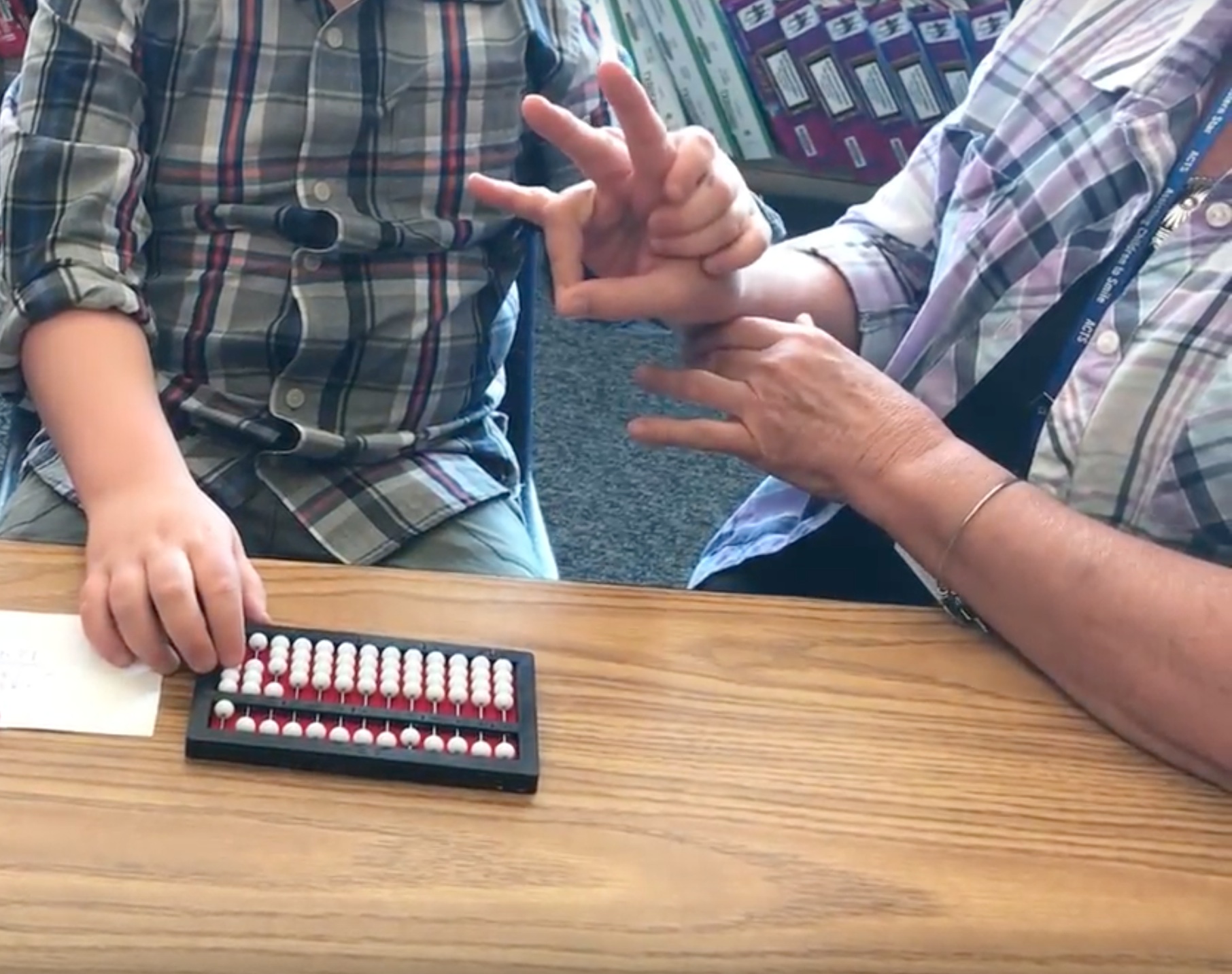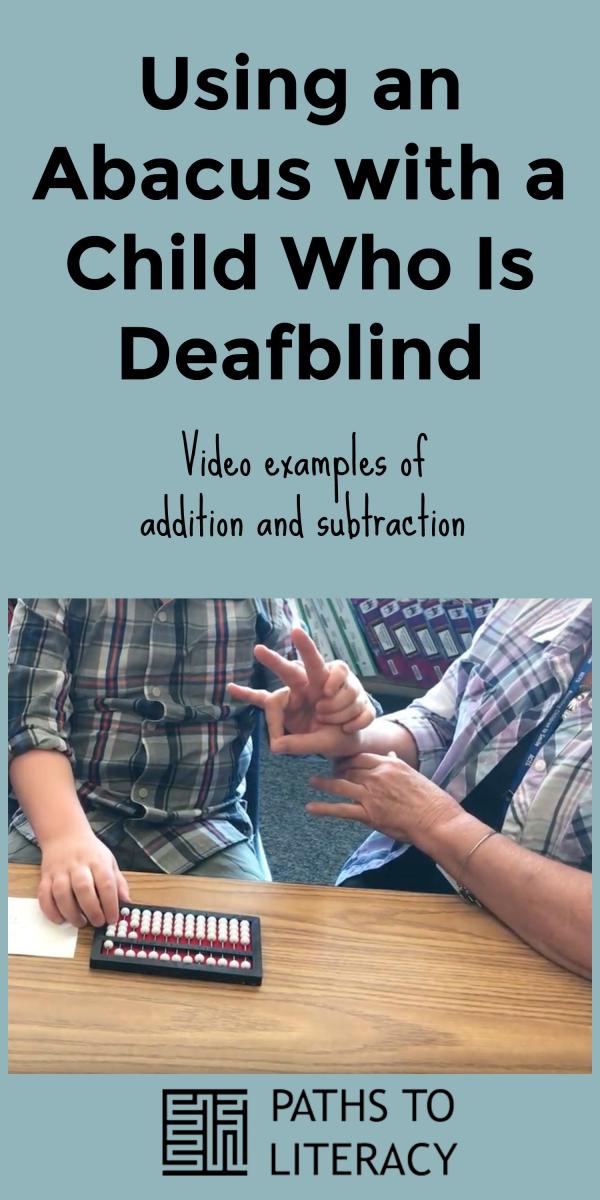Using an Abacus with a Child Who Is Deafblind

These videos demonstrate the use of an abacus to solve addition and subtraction problems with a 4th grade student who is deafblind with an interpreter using tactile sign, braille, and a teacher.
Liam (4th grade, braille reader, deafblind) is proficient at adding and subtracting using base ten blocks. Recently we (his team at school and I) have been working on him becoming proficient at adding and subtracting using the abacus. Prior to learning how to add and subtract on the abacus he had instruction on how to set up numbers on the abacus and could do so independently and accurately. We used the examples in the text, "Abacus Basic Competency: A Counting Method," by Susan M. Millaway to guide our instruction. We are teaching the "Counting Method" in the videos. (A simple definition of the Counting Method is that you count up [add] or countdown [subtract] one number at a time on the abacus). We often will pair these lessons with the base ten blocks and writing his answers on the brailler. He uses the abacus to check his work.
Addition on the Abacus
In this video Liam adds 44 + 13 using the abacus. (Turn on closed captions.)
Transcript: Addition on Abacus
Subtraction on the Abacus
In this video Liam is subtracting 137-13. (Turn on closed captions.)
Transcript: Subtraction on Abacus
Teacher: Can you read that problem for me, Liam?
Liam (through interpreter): One hundred thirty-seven (137).
Teacher: Okay, when you set up... you are right! You're going to set up the hundreds first. 100, good. 100 good. Next? Three tens. Good! And then you've got the seven ones. Good work, Liam! So, what are we going to be subtracting? Can you read that?
Liam (through interpreter): 13.
Teacher: 13 is correct. So take away one 10. You were right. Okay and now let's take away three ones. Are you ready? I'll help. One. Okay, can you... let's start over because you went too fast for me. I think you are right, but let's go a little... let's do it together. Start over. 137. 137. Got it. All right. Let's take it away with me. Are you ready? So we've got to take away one ten and three ones. Ready? One, two, three. There we go. I only needed to take away three, remember? So, what's your answer?
Liam (through interpreter): 124.
Teacher: Perfect! Good work, Liam.
Liam (through interpreter): Finished.

